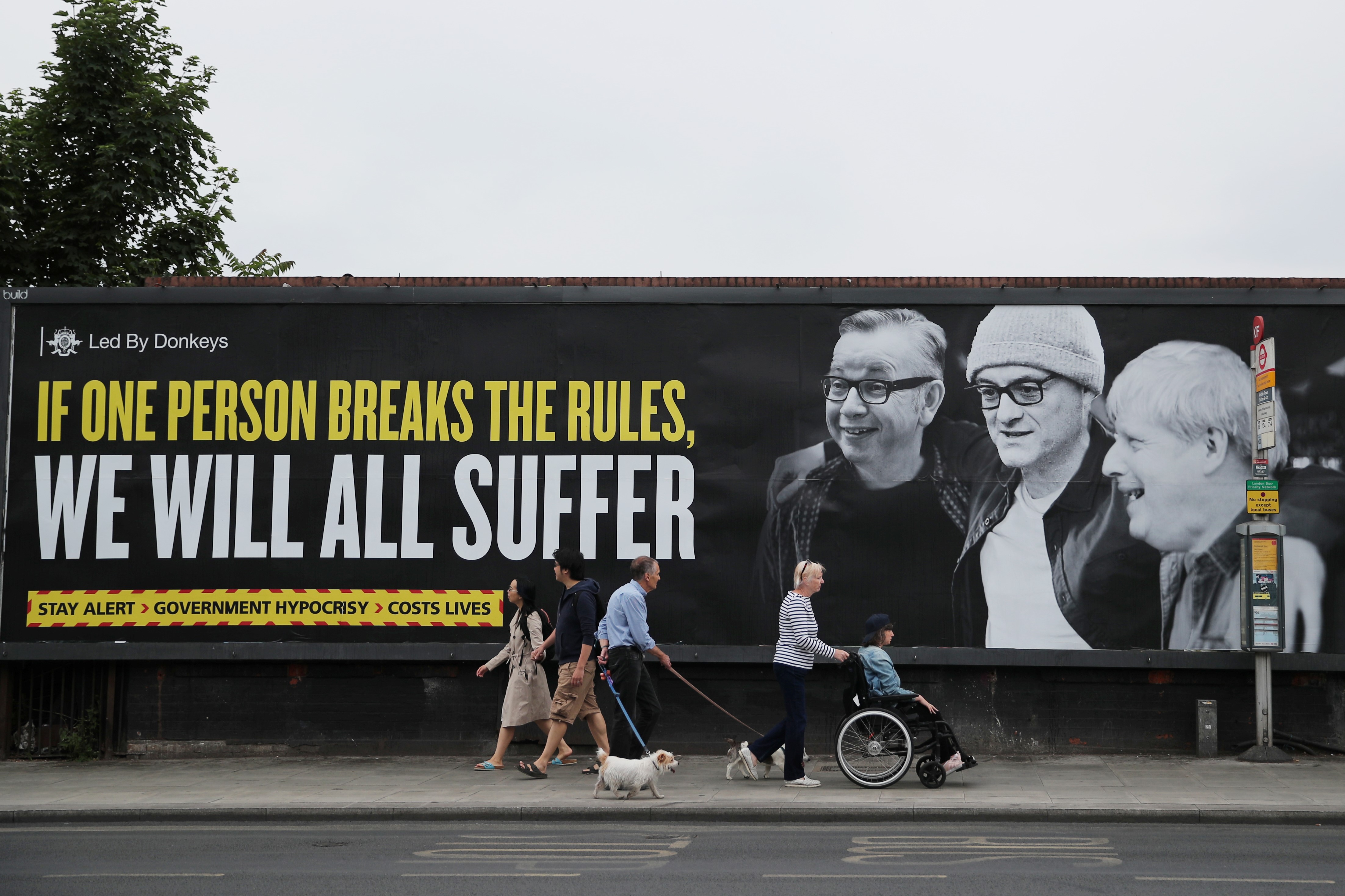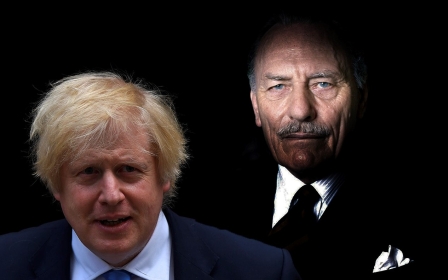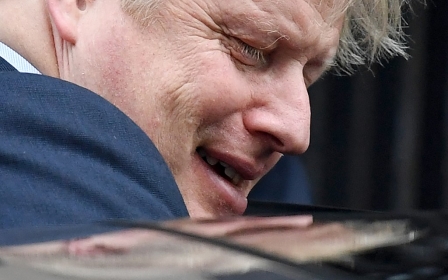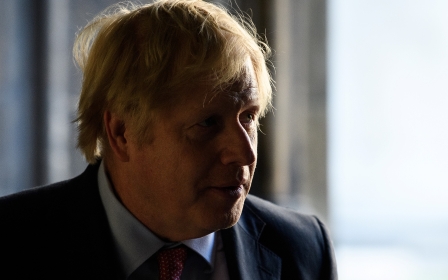Boris Johnson's post-truth government marks the end of the Nolan consensus
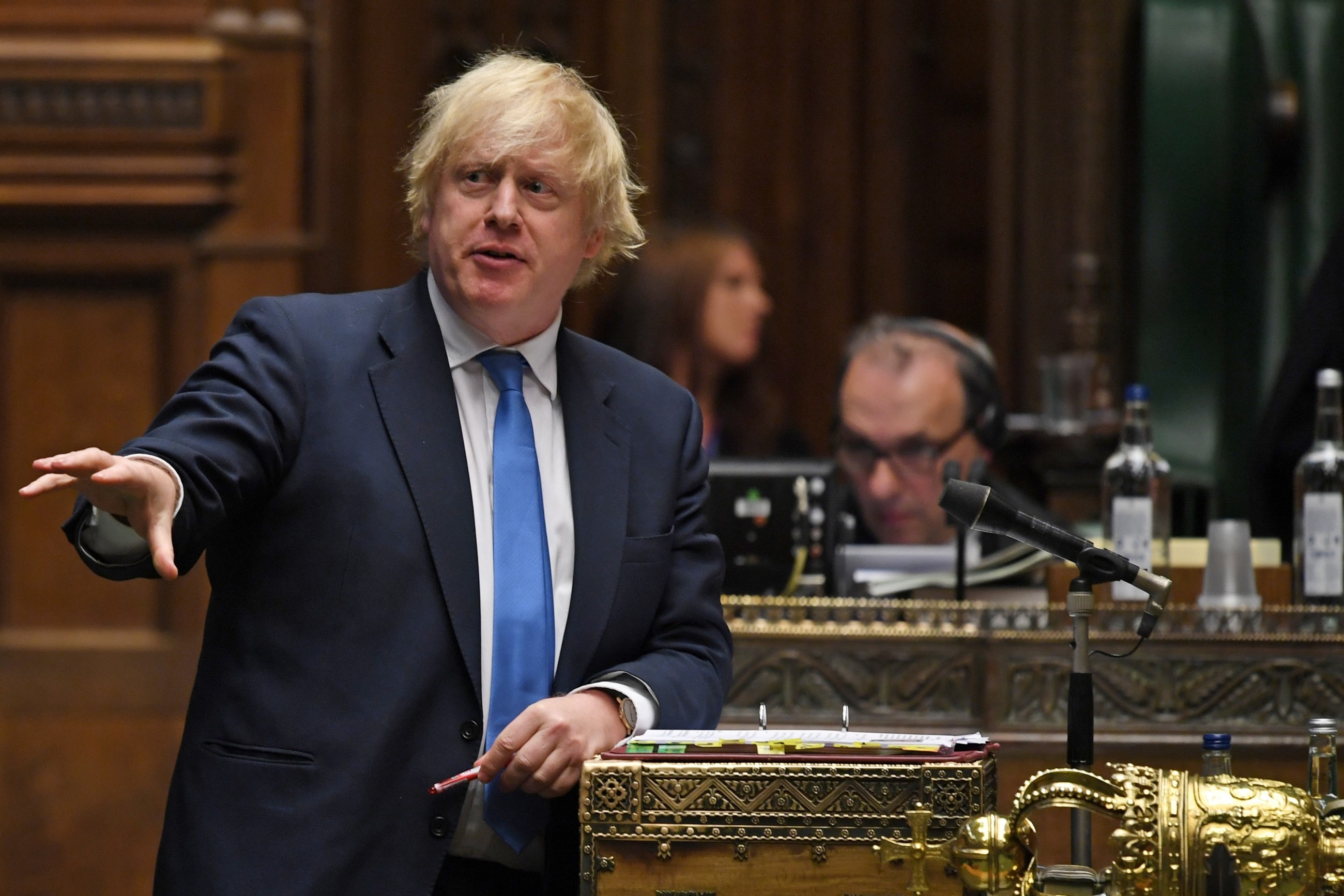
Twenty five years have passed since Lord Nolan published the report that has provided the moral framework for British public life ever since.
John Major, British prime minister at the time, had commissioned the report in the wake of an embarrassing scandal where two Conservative MPs were allegedly paid to ask parliamentary questions on behalf of then Harrods owner Mohamed Al-Fayed. Nolan delivered the goods. His report set the framework for the Committee on Standards in Public Life, which monitors integrity in parliament.
'Almost every single one of the Nolan principles of public life is being breached by the government of Boris Johnson'
Leighton Andrews, University of Cardiff
A quarter of a century later is the ideal moment to assess Nolan's legacy. The verdict is dreadful. It could hardly be worse. It makes one despair.
In a carefully written article published in Political Quarterly last year, Professor Leighton Andrews of the University of Cardiff declares that:
"The Nolan era is over. Ministers can perform badly but not be sacked. They can mislead Parliament but escape punishment. Cabinet and other ministers can breach collective responsibility with impunity. Details of Cabinet meetings and indeed Cabinet minutes can be leaked without any sanction. Ministers can undermine civil servants without consequence to themselves."
New MEE newsletter: Jerusalem Dispatch
Sign up to get the latest insights and analysis on Israel-Palestine, alongside Turkey Unpacked and other MEE newsletters
According to Andrews, almost every single one of the Nolan principles of public life is being breached by the government of Prime Minister Boris Johnson. Those words were written last November.
The situation has grown worse since then. Much worse.
The Code
In my column three weeks ago, I drew attention to the demand inside the Ministerial Code, a set of rules and principles issued by the prime minister to outline the standards of conduct for government ministers, that ministers who "knowingly mislead parliament would be expected to offer their resignations to the prime minister".
I gave a series of examples of how the ministerial code was being routinely flouted by the prime minister himself. Since writing that piece, further statements from the prime minister in the House of Commons have been proven false. For example, the prime minister told parliament in early June about Covid-19 that "the tests conducted at the 199 testing centres, as well as the mobile test centres, are all done within 24 hours".
As the statistical checking website Fullfact drily noted last week: "When this was said, on 3 June, 19 percent of tests at regional testing sites and five percent of tests at mobile test centres were done within 24 hours." Yet, in a flagrant defiance of the ministerial code, Johnson's false statement remains on the House of Commons' record.
But not telling the truth to parliament is not the only problem. Ever since Johnson became prime minister, there have been a number of troubling episodes concerning conflicts of interest around decisions made by ministers.
Conflict of interest
Robert Jenrick, housing secretary, ought to have resigned over the deeply embarrassing set of revelations concerning his role in a decision to allow planning permission for a development on the Isle of Dogs, East London, by former Tory donor Richard Desmond.
Jenrick had reportedly been in contact with Desmond and gone against the advice of government officials when awarding the planning permission. According to The Guardian, Jenrick's decision was made just 24 hours before the introduction of local community charges from Tower Hamlets council, which "would have cost Desmond at least £40m".
The council challenged the decision, which has since been overturned. According to the Independent, High Court documents showed that what Jenrick did was "unlawful by reason of apparent bias".
Jenrick later told the House of Commons: "I took the decision in good faith and with an open mind. I am confident that all the rules were followed in doing so... It is not unusual for a secretary of state to come to a different conclusion from a local authority. It is not unusual for a secretary of state to come to a different conclusion from a planning inspector."
At the very least, one would have expected Johnson to have ordered a Cabinet Office enquiry. Instead, the prime minister stood by Jenrick until the fuss had died down.
Unanswered questions
Details have emerged this week about an £840,000 (over $1m) contract being awarded to a close ally of Dominic Cummings, Johnson's special adviser, and Michael Gove, the current Cabinet Office minister, without open tender.
According to a joint investigation by openDemocracy and the Guardian, the contract was awarded to Public First, "a small policy and research company in London's Tufton Street," which is "run by James Frayne - whose work alongside Cummings dates back to a Eurosceptic campaign 20 years ago - and Rachel Wolf, a former advisor to Gove who co-wrote the Conservative Party's 2019 election manifesto".
It is important to stress that there is no illegality in these cases. But what does emerge is a pattern of conflict of interest and cronyism which damages the reputation of the government, and also British public life
The government justified the lack of public competition for the contract due to emergency regulations that allow urgent commissions in response to the Covid-19 crisis. However, the report revealed that the Cabinet Office's public record states that part of the work related to Brexit rather than coronavirus.
According to the report, "a Cabinet Office spokesman said that this was due to bookkeeping methods, insisting that all the focus group research done by Public First was in fact related to the coronavirus crisis".
In response to a set of questions from MEE, a Cabinet Office spokesperson said: "Public First was awarded a contract to carry out focus groups across the UK in response to the Covid-19 crisis. This has been published on gov.uk in the normal way."
The spokesman told the Guardian that Public First were "contracted to undertake this work because of their wealth of experience in the area," and that they "carried out this work to make sure the vitally important public health messages the Government was issuing were the right ones. This work will continue to inform future Covid-19 campaign activity."
A pattern of cronyism
Another case emerged on Tuesday thanks to a diligent investigation by Mark Curtis and Matt Kennard at the Declassified website. It shows that the Home Office donated more than £80,000 (over $100,000) to The Henry Jackson Society (HJS), a neoconservative think tank, during 2015-17. The money was to produce a report on UK connections to Islamist terrorism.
Declassified notes: "The HJS has donated more than £12,000 to mainly Conservative MPs since 2013. Priti Patel, now the home secretary, was given £2,500 by the HJS in 2013 to cover a visit to Washington DC, while Michael Gove was given £2,764 in 2016 for a visit to New York."
In response to MEE questions, the Home Office said: "We work with a wide range of organisations to understand the threats we face and to protect the public. Funding was agreed in 2014 for a third edition of a report by the Henry Jackson Society titled 'Islamist Terrorism: The British Connections'. Given that the organisation had produced the previous two editions, they had the necessary expertise to update the report effectively."
MEE approached HJS for a comment but received no response by time of publication.
It is important to stress that there is no illegality in these cases.
But what does emerge is a pattern of conflict of interest and cronyism which damages the reputation of the government, and also British public life. In his original report 25 years ago, Lord Nolan warned of the dangers of a fall in the standards of public life. "Unless corrective measures are promptly taken," he wrote, "there is a danger that anxiety and suspicion will give way to disillusion and growing cynicism."
His words could not ring clearer today.
I don't believe it's a coincidence that this collapse in standards comes at the same time that Boris Johnson and his senior adviser Dominic Cummings are waging war on the civil service.
The Ministerial Code makes it clear that ministers should "uphold the impartiality of the Civil Service". There's been no attempt to do this. Already, Sir Mark Sedwill, the Cabinet Secretary and UK's top civil servant, has been forced out. Several other permanent secretaries are leaving as well.
The state's integrity
The British state used to be renowned internationally for its integrity. With Johnson in charge that reputation is being swept away.
Nolan set a number of moral principles which offer the ethical grounding for matters including misleading parliament, MPs' interests, business appointments for former ministers, ministerial accountability, impartiality of the civil service and neutrality of the monarch.
In each one of these areas, standards have fallen under the last three Conservative prime ministers and are now in collapse under the current prime minister. Johnson and the team that surrounds him do not believe that ordinary standards belong to them.
As Eric Anderson, Johnson's headmaster when he was at Eton, wrote in his school report: "I think he honestly believes that it is churlish of us not to regard him as an exception, one who should be free of the network of obligation which binds everyone else."
The warning signs
All the warning signs were there before Johnson became prime minister, as Leighton Andrews vividly points out in the following passage:
"In July 2018, within a week of resigning as foreign secretary, Boris Johnson signed a contract with the Daily Telegraph to write a weekly column. He did not apply to ACOBA [the Advisory Committee on Business Appointments] for permission until two weeks after signing the contract.
The British state used to be renowned internationally for its integrity. With Boris Johnson in charge that reputation is being swept away
The chair of ACOBA, Baroness Browning, wrote to Johnson on 8 August, saying:
"The committee considers it unacceptable that you signed a contract with The Telegraph and your appointment was announced before you had sought and obtained advice from the committee, as was incumbent upon you on leaving office under the Government's Business Appointment Rules."
The letter pointed out that the rules were contained within the Ministerial Code and this was "a failure to comply with your duty" to seek advice. Johnson had been reminded in a letter from his permanent secretary on leaving office of his duties. He claimed that he did not receive this letter before signing the contract.
The committee refused to grant retrospective advice, stating that Johnson's actions were "a breach of the rules". It said that it expected that his Telegraph contract would be amended to confirm that he would not make use of privileged information arising from his role as foreign secretary.
In many eyes, Johnson's abuse of the rules was accentuated by his refusal to leave the foreign secretary's Carlton House residence for three weeks, despite warnings from the permanent secretary.
Boris Johnson's behaviour provides another illustration of the end of the Nolan consensus: in December 2018 he was told by the Commons Standards Committee to apologise for his "over‐casual" failure to declare £52,000 (over $65.000) worth of expenses in an incident which the Parliamentary Commissioner for Standards said was "a lack of attention to House requirements, rather than inadvertent error".
Lord Nolan, who died in 2007, must be rolling in his grave at the catastrophic collapse of standards under the current British prime minister.
The views expressed in this article belong to the author and do not necessarily reflect the editorial policy of Middle East Eye.
Middle East Eye delivers independent and unrivalled coverage and analysis of the Middle East, North Africa and beyond. To learn more about republishing this content and the associated fees, please fill out this form. More about MEE can be found here.



